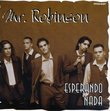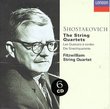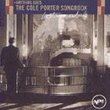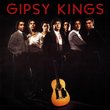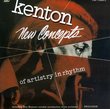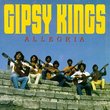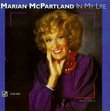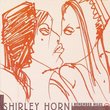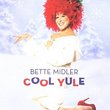| All Artists: Leonard Slatkin, Joan Morris, Carmen Pelton, Nmon Ford Title: William Bolcom - Songs of Innocence and of Experience (William Blake) / Slatkin, University of Michigan School of Music Members Wishing: 0 Total Copies: 1 Label: Naxos American Release Date: 10/19/2004 Genre: Classical Style: Opera & Classical Vocal Number of Discs: 3 SwapaCD Credits: 3 UPC: 636943921623 |
Search - Leonard Slatkin, Joan Morris, Carmen Pelton :: William Bolcom - Songs of Innocence and of Experience (William Blake) / Slatkin, University of Michigan School of Music
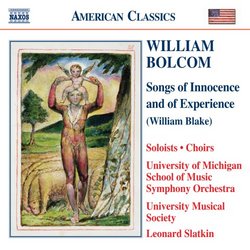 | Leonard Slatkin, Joan Morris, Carmen Pelton William Bolcom - Songs of Innocence and of Experience (William Blake) / Slatkin, University of Michigan School of Music Genre: Classical
William Blake?s Songs of Innocence and of Experience date from the turbulent period in English and American history when the United States was in its infancy. Occupying 25 years of William Bolcom?s compositional life, his ... more » ![header=[] body=[This CD is available to be requested as disc only.]](/images/attributes/disc.png?v=a4e11020) ![header=[] body=[This CD is available to be requested with the disc and back insert.]](/images/attributes/disc_back.png?v=a4e11020) ![header=[] body=[This CD is available to be requested with the disc and front insert.]](/images/attributes/disc_front.png?v=a4e11020) ![header=[] body=[This CD is available to be requested with the disc, front and back inserts.]](/images/attributes/disc_front_back.png?v=a4e11020) |
Larger Image |
CD DetailsSynopsis
Album Description William Blake?s Songs of Innocence and of Experience date from the turbulent period in English and American history when the United States was in its infancy. Occupying 25 years of William Bolcom?s compositional life, his "musical illuminations," inspired by Blake?s own wide panoply of poetic styles in the cycle, travel thrillingly from intense dissonance to folk, rock, and reggae to encompass the breadth of the Blakean spiritual universe. Similar CDs
Similarly Requested CDs
|
CD ReviewsA Magnificent Achievement/Bolcom's Masterpiece J Scott Morrison | Middlebury VT, USA | 10/19/2004 (5 out of 5 stars) "When William Bolcom (b. 1938) was a teenager he read and was moved by William Blake's set of 46 poems, 'Songs of Innocence and of Experience,' and vowed that one day he would set them all to music. Indeed, he began the task in the mid-1950s but set it aside until he arrived at the University of Michigan where he has been on the faculty since the early 1970s. He had remembered the utter joy of participating in the chorus in a performance of Bach's 'St. Matthew Passion' while a student at the University of Washington, a performance that called on many of the resources of that university and its community. He says that he wanted the same sort of experience for those who participate in his orchestral Blake song cycle, and indeed this recording comes from just such a production. It uses many of the resources of the wonderful School of Music at the University of Michigan (its orchestras and choruses) as well as musicians from outside the School and community musicians as well, all under the direction of conductor Leonard Slatkin. Add to this the use of professional soloists from all across the musical spectrum (opera singers, a Broadway actor/musician, a folk/blues musician) and you get a mix that includes almost everything but the kitchen sink. This is Bolcom's 'Symphony of (almost) a Thousand,' as it were, as it takes upwards of 500 people to perform. Ann Arbor's Hill Auditorium was filled to the max when this performance took place on April 8, 2004. There has been an buzz about this piece among music-lovers ever since its première in Germany under the direction of Dennis Russell Davies in 1984. In spite of the huge number of performers required (not to speak of the need for a stage director) it has since been mounted a dozen times. And those of us who had wanted badly to hear it but had not been able to attend a performance, had had to make do with bootleg tapes of previous performances. And we hoped and prayed that one day it would be recorded commercially. Our wait is over! And thanks to Bolcom's wisdom, it is on the budget label, Naxos, rather than one of the high-priced labels; thus its 3CDs will not break anyone's budget. Bolcom notes that in these days of the easy ripping-and-burning of CDs privately, it made more sense to issue the performance on a budget label in hopes that more people would simply go out and buy it, rather than ask someone to burn it (illegally, of course) for them. In addition, of course, one would get the complete texts and booklet notes as well. Smart move. What about the music and the performance? The diction and emotional tone in Blake's poems, as is well known, are extremely variable, from elegant Drydenesque verses to the down-and-dirty vernacular of 1790s London, from songs of purest childlike innocence to poetic harangues about the horrors of the world. Bolcom has supplied music, using all the resources available to a 20th century composer, that mirrors both the diction and the emotional content of the poems. Thus we have the simple lullaby of 'A Cradle Song' (sung deliciously by soprano Linda Hohenfeld) to the bewildered trusting tone of 'The Chimney Sweeper' set to a Salvation Army band accompaniment (and narrated by Broadway actor Nathan Lee Graham, a standout whenever he appears here); from the child's nature poem (of a lost Ant [Emmet] having its way home lit by an obliging glow-worm) of 'A Dream' in a lively atonal orchestral setting and sung expertly by lyric soprano Ilana Davidson, to the corresponding, horrific Webernian 'Little Boy Lost' (sung by soprano Carmen Pelton and the combined choruses) whose Little Boy has no one to help him find his way; from the percussion-accompanied choral Sprechstimme of 'Tyger, Tyger, Burning Bright' to the ethereal 'The Fly' sung by string-accompanied children's chorus; from the gentle guitar-accompanied 'Nurse's Song' ['When the voices of children are heard on the green'] sung in her inimitable (and beloved) style by Bolcom's wife, mezzo Joan Morris to the woozy 'The Sick Rose' [eclipsing, in my mind, Theodore Chanler's setting] sung by contralto Marietta Simpson with preternatural calm that nonetheless evokes horror; from tenor Thomas Young whose opening Introduction sets up the expectation that we are in for great things, to soprano Measha Brueggergosman whose rich soprano (and spot-on intonation) is assigned to 'The Lamb' and 'The Blossom,' both set atonally, and baritone Nmon Ford who sings the hieratic 'Hear the Voice of the Bard (Who Present, Past & Future sees).' Well, you get the idea. There is something here for everyone, but more important there is a unity to both poems and music, in spite of the disparate styles, that makes the set a coherent whole. Assuming Amazon, as it seems to be doing these days, decides to list all the tracks and allows you to listen to the first minute or so of each track, I would suggest, in addition to the songs listed above, that for more of a taste of the delights of this set you hear snippets from: My Pretty Rose Tree (CD 3) Ah, Sun-Flower (3) The Little Vagabond (2) London (3) The Black Boy (1) Earth's Answer (2) Bolcom slightly rearranged the published order of Blake's poems, but cites a discovery--a list of the poem's titles among the papers of Blake's widow--that supports his ordering. He had from early on decided to put 'A Divine Image' at the very end, largely because of its summing-up of human nature: 'Cruelty has a Human Heart And Jealousy a Human Face; Terror the Human Form Divine, And Secrecy the Human Dress. The Human Dress is forged Iron, The Human Form a fiery Forge, The Human Face a Furnace seal'd, The Human Heart a hungry Gorge.' This shattering poem is set to shattering music sung ironically as if by a mystical Sportin' Life by Nathan Lee Graham (with the combined choruses). A devastating finish to a stunning achievement by Bolcom and his musicians. Make no mistake, this is a magnificent work in a performance whose recording preserves the sense of occasion, almost certainly the major piece by which Bolcom will be most remembered. (Although I need to say that I hope many others of his works survive, including the eagerly awaited opera based on Robert Altman's marvelous movie, 'The Wedding,' set for production at the Lyric Opera of Chicago later this year). 'Songs of Innocence and of Experience' has rarely been out of my CD player since I received it and likely that will continue: this work contains the world. You cannot afford to be without this magnificent work. Grab it; it's not likely to be recorded again soon. TT=3CDs: 2:17:11 Scott Morrison" A Massive Masterwork: Classical Music Embracing the Globe Grady Harp | Los Angeles, CA United States | 11/12/2005 (5 out of 5 stars) "William Bolcom has created the impossible musical work: a wholly apropos setting to the strange William Blake collection 'Songs of Innocence and Experience'. Bolcom seems to be familiar with about every aspect of music making from every culture and has melded these variegated influences with his fine classical compositional technique into a huge work for large orchestra, solo instrumentalists, percussion, multiple choruses, and ten soloists - clearly monumental forces. Fortunately this 3 CD set (55 tracks!) is taken from a live performance in Michigan in October 2004 and is rendered in a superlative fashion by Leonard Slatkin conducting the University of Michigan School of Music Symphony Orchestra, University Musical Society, and exceptional soloists Joan Morris, Carmen Pelton, Christine Brewer, Ilana Davidson, Measha Brueggergosman, Linda Hohenfeld, Nmon Ford, Thomas Young, and Nathan Lee Graham. Blake's poems are rich in imagery and plead for the type of outlandish variation in interpretation that Bolcom achieves. The music is essentially tonal with riffs into atonality at the right moments, and incorporates speakers, spoken choruses, hymns, cabaret songs, jazz, rock, country - name it and it is included. But does the disparity of musical types make the work fragmented? Absolutlely not! The various sections fall into place in the pace of the poems and the nervous energy found in some portions are balanced by moments of childlike serenity. This is indeed a masterwork and one that deserves wide performances. The size of the forces required hampers most orchestras from programming the piece, but until funds and programming contingencies allow that to happen, this recording is as fine a performance as one could want. Highly Recommended. Grady Harp, November 05" The American Gurrelieder G P Padillo | Portland, ME United States | 01/21/2005 (5 out of 5 stars) "I have heard various descriptions of this magnificent work but the best to date is "An American Gurrelieder"
Bolcolm's musical language encompasses nearly every style of music - even some seemingly jarring genres one would never expect to coexist - yet they are seamlessly blended into what sounds like a natural whole. This is a remarkable achievement and it is a shame that so massive and important a work remains somewhat neglected. Kudos to Naxos for helping remedy "Songs" neglect by releasing this live and glorious performance out on their American Classics series. With hundreds of musicians involved, all under the watchful and loving baton of Leonard Slatkin the combined forces deliver a performance for the ages. It is "okay" to listen to the discs (or portions of the work) individually, but to experience the entire thing in a single sitting - well the experience is an overwhelming one. This should definitely get a nod for "Record of the Year" as it is one of the most remarkable achievements in modern American music history. Highest recommendation. " |

 Track Listings (22) - Disc #1
Track Listings (22) - Disc #1
